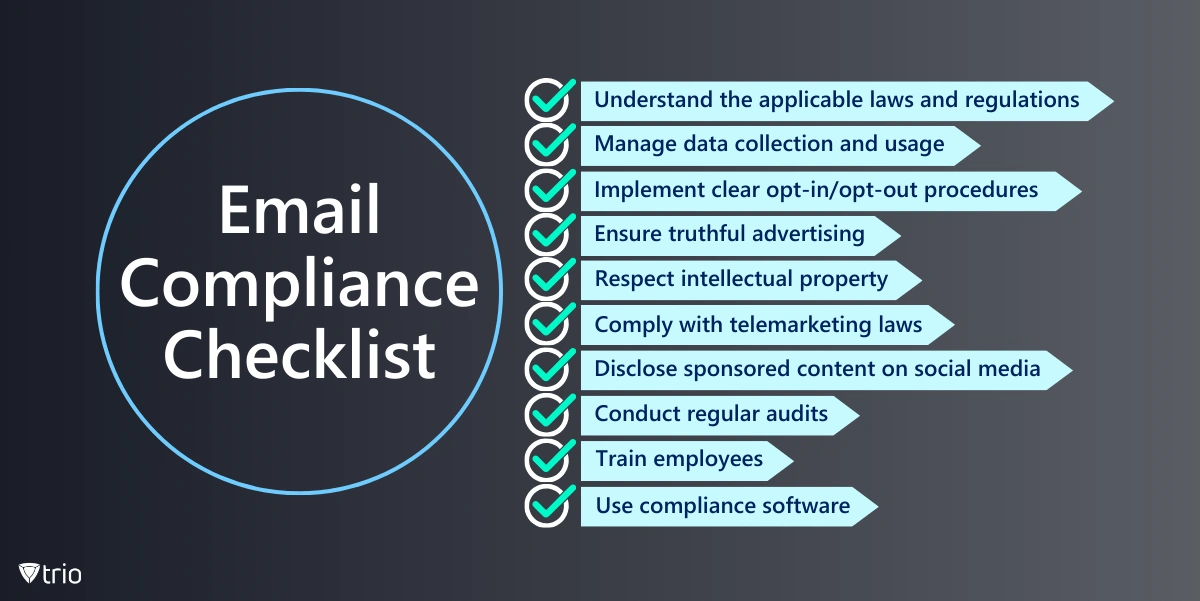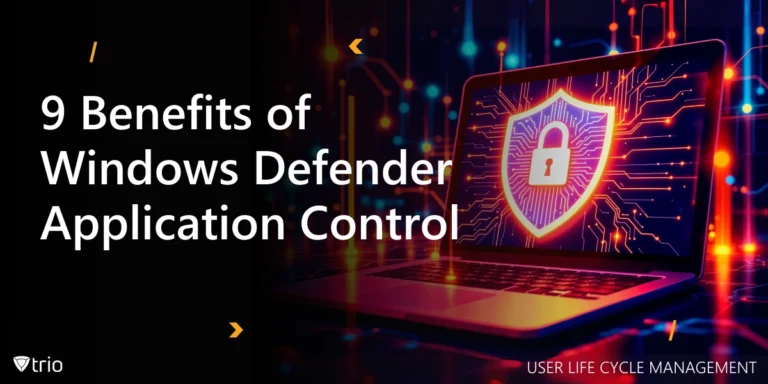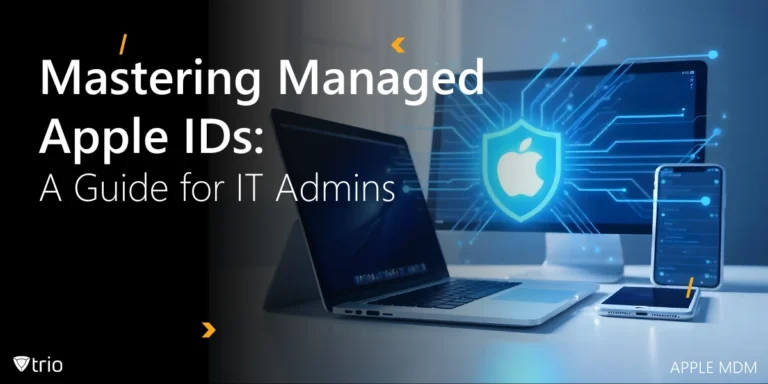In the interconnected digital ecosystem of today, email remains a pivotal mode of communication for businesses. It’s fast, efficient, and practically cost-free. However, the ubiquitous usage of email also brings forth a multitude of challenges related to email compliance, data privacy, and security. Understanding and adhering to email compliance is no longer a choice but a necessity for businesses to avoid hefty penalties, legal repercussions, and damage to their reputation.
Understanding Email Compliance
Email compliance refers to the observance of specific rules, regulations, and laws set forth by regulatory bodies and governments pertaining to email communications. These regulations dictate how businesses should handle email data retention, privacy and security, and anti-spam measures to ensure the safety and confidentiality of emails sent and received.
Importance of Email Compliance
Compliance with email regulations is vital to protect businesses from legal and financial risks, potential lawsuits, and substantial fines. It ensures business communications transparency, builds customer trust, and safeguards your brand’s reputation.
Non-compliance with email regulations can result in severe penalties. For instance, violations of the European Union’s General Data Protection Regulation (GDPR) can incur fines of up to €20 million or 4% of the company’s annual global turnover, whichever is higher.
Who is Responsible for Email Compliance?
Responsibility for email compliance is shared across the organization. IT managers should establish and enforce email retention policies, while system administrators must implement proper archiving tools. Compliance officers are tasked with ensuring that all information is preserved in the prescribed manner. Additionally, all employees must adhere to company procedures and use official enterprise communication channels, emphasizing the importance of collective responsibility in upholding email compliance.
Laws and Regulatory Bodies Governing Email Compliance
Depending on the region and industry, email compliance is governed by various laws and regulatory bodies. Some of the prominent email compliance laws and regulations include the General Data Protection Regulation (GDPR), the CAN-SPAM Act, the Health Insurance Portability and Accountability Act (HIPAA), and many others.

Challenges in Email Compliance
Email compliance presents multiple challenges. Given the volume of emails exchanged daily, tracking every message and ensuring its compliance with relevant regulations can be daunting. Further, the ever-evolving landscape of regulations and laws pertaining to email compliance adds to the complexity, requiring businesses to stay updated to ensure compliance continually.
The rise of hybrid and remote work and the use of personal devices for business communications further complicates email compliance, as it becomes increasingly challenging to control and secure the flow of data.
Role of an Email Administrator: “What Is an Email Administrator?”
An email administrator plays a crucial role in maintaining email compliance. They manage and monitor the organization’s email system, ensuring its efficiency, security, and compliance with relevant regulations. They implement email security measures, handle user access controls, oversee email retention and archiving, and respond to any issues related to the email system.
Email Compliance Regulations in Detail
In the following sections, we will discuss some of the critical email compliance examples from the realm of compliance regulations.
General Data Protection Regulation (GDPR)
GDPR is a European Union regulation that emphasizes the protection of personal data. It mandates that businesses must obtain explicit consent from recipients before collecting and using their data for marketing purposes. Failure to comply with GDPR can lead to substantial penalties.
CAN-SPAM Act
The CAN-SPAM Act is a US regulation that sets rules for commercial email and gives recipients the right to stop receiving emails. It requires businesses to disclose the commercial nature of emails, provide a valid physical address, and offer an easy method for recipients to opt-out of future emails.
Health Insurance Portability and Accountability Act (HIPAA)
HIPAA is a US regulation that protects individual health information’s privacy. It requires healthcare providers to secure patient health information and prohibits using unencrypted emails to send protected health information.
Other Notable Email Compliance Regulations
Other notable regulations include the California Consumer Privacy Act (CCPA), Canada’s Anti-Spam Legislation (CASL), the Federal Information Security Management Act (FISMA), the Payment Card Industry Data Security Standard (PCI DSS), and many others.
Importance of Data Privacy in Email Compliance
Data privacy is a cornerstone of email compliance. Businesses are required to protect personally identifying information (PII) and other sensitive information contained in emails from unauthorized access. This includes implementing security measures such as encryption, access controls, and secure storage.
A breach of data privacy can result in severe penalties and damage to a business’s reputation. Therefore, maintaining data privacy is not just a regulatory requirement but also a critical practice for building trust with customers and safeguarding the business’s reputation.
Email Compliance Checklist
An email compliance checklist can help businesses ensure they are adhering to all necessary regulations. Here’s a simple checklist:

- Understand the applicable laws and regulations: Familiarize yourself with the relevant local, national, and international laws related to email communications.
- Manage data collection and usage: Be transparent about the data you collect, how you use it, and how long you retain it. Obtain consent wherever necessary.
- Implement clear opt-in/opt-out procedures: Provide clear procedures for customers to opt-in or opt-out of communication, especially for email marketing.
- Ensure truthful advertising: All marketing messages should be accurate and not misleading. They should represent your product or service fairly.
- Respect intellectual property: Avoid copyright infringement by ensuring all content, images, and music used in your marketing materials are original or correctly licensed.
- Comply with telemarketing laws: If you engage in telemarketing, ensure you follow the relevant laws, such as calling hour restrictions and respecting ‘do not call’ lists.
- Disclose sponsored content on social media: If you use social media for marketing, clearly disclose sponsored content and affiliations.
- Conduct regular audits: Regular internal audits can help identify potential compliance issues. Audits should cover all aspects of marketing, from data handling to the accuracy of advertising materials.
- Train employees: Regular training can ensure all team members understand the importance of compliance and how to maintain it.
- Use compliance software: Leverage technology to help track compliance, automate certain processes, and keep up with changing regulations.
Newsletter Compliance
Newsletter compliance is an important aspect of email compliance. Like other forms of email marketing, newsletters must comply with regulations such as the CAN-SPAM Act and GDPR. This includes obtaining explicit consent from recipients, including a clear unsubscribe link in every newsletter, and ensuring transparency about the sender’s identity and the nature of the content.
Role of Email Compliance Software
Email compliance software can help businesses automate and streamline their compliance efforts. These solutions can automatically archive and retain emails, enforce email policies, manage opt-in and opt-out processes, and provide reporting and analytics to facilitate compliance audits. They can also offer features like encryption and data loss prevention to enhance email security and protect sensitive information.
Role of MDM in Email Compliance
Mobile Device Management (MDM) plays a crucial role in email compliance, particularly in the era of remote work and Bring Your Own Device (BYOD) policies. MDM solutions can help businesses secure and manage emails on employees’ personal devices, ensuring that sensitive data is protected and that email compliance regulations are adhered to. The Trio MDM solution, for instance, provides robust security features and compliance capabilities, enabling IT administrators and businesses to manage and secure email communications on mobile devices effectively.
To witness firsthand the positive impact that such a system can have on your operation, you’re invited to try out Trio’s free demo and see how you can make a difference in IT automation at your organization.
See Trio in Action: Get Your Free Trial Now!
Email Compliance for Your Business: Conclusion
Email compliance is a critical aspect of any business’s operations. It involves adhering to various laws and regulations, implementing robust security measures, and educating employees about their responsibilities. With the right knowledge and tools, businesses can successfully navigate the complex landscape of email compliance, protect sensitive data, and maintain a strong reputation in their industry.




